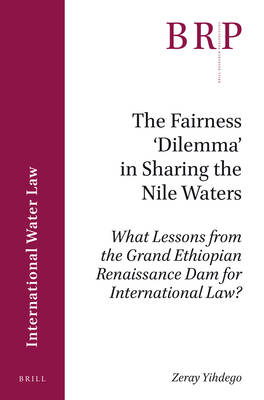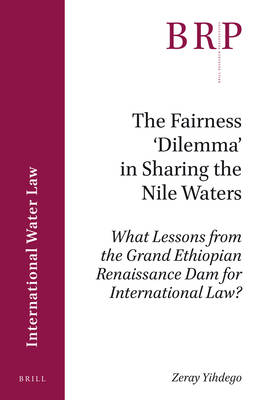
- Afhalen na 1 uur in een winkel met voorraad
- Gratis thuislevering in België vanaf € 30
- Ruim aanbod met 7 miljoen producten
- Afhalen na 1 uur in een winkel met voorraad
- Gratis thuislevering in België vanaf € 30
- Ruim aanbod met 7 miljoen producten
Zoeken
The Fairness 'Dilemma' in Sharing the Nile Waters
What Lessons from the Grand Ethiopian Renaissance Dam for International Law?
Zeray Yihdego
€ 128,45
+ 256 punten
Omschrijving
In The Fairness 'Dilemma' in Sharing the Nile Waters, Zeray Yihdego enquires into the fairness issues in connection with the construction of the Grand Ethiopian Renaissance Dam (GERD) in light of relevant colonial-era Nile treaties, post-1990 Nile framework instruments, and international watercourses law. The GERD is now a fait accompli, but fairness considerations will continue to be vital issues during its construction, filling, and operation. This monograph argues that the GERD is a symbol of a fair share of the Nile waters by Ethiopia, the realization of which depends on, inter alia, an appropriate economic return, benefit sharing and prevention of significant impacts. Yihdego articulates the lessons that can be applied to public international law and suggests a process to address the issue of unfair agreements, arguing that, although the principle of fairness's application can be complex, the notions of procedural fairness and distributive justice can define and delineate the principle with reference to a specific treaty regime.
Specificaties
Betrokkenen
- Auteur(s):
- Uitgeverij:
Inhoud
- Aantal bladzijden:
- 88
- Taal:
- Engels
- Reeks:
Eigenschappen
- Productcode (EAN):
- 9789004351752
- Verschijningsdatum:
- 21/06/2017
- Uitvoering:
- Paperback
- Formaat:
- Trade paperback (VS)
- Afmetingen:
- 150 mm x 231 mm
- Gewicht:
- 45 g

Alleen bij Standaard Boekhandel
+ 256 punten op je klantenkaart van Standaard Boekhandel
Beoordelingen
We publiceren alleen reviews die voldoen aan de voorwaarden voor reviews. Bekijk onze voorwaarden voor reviews.











